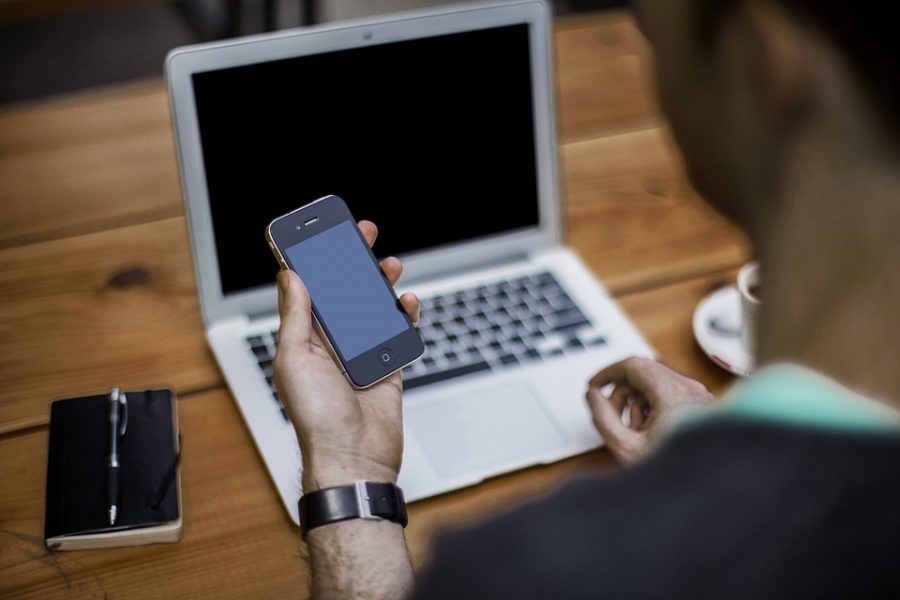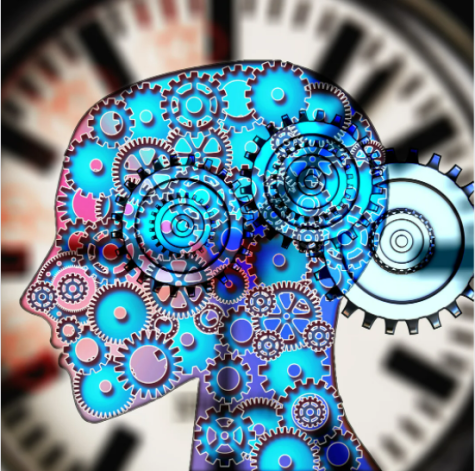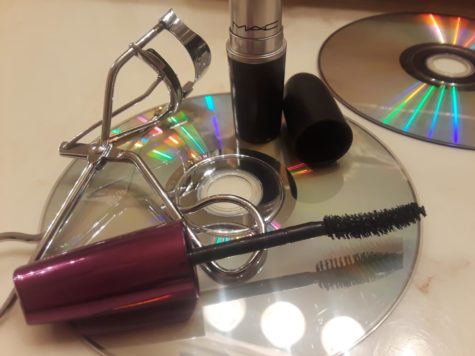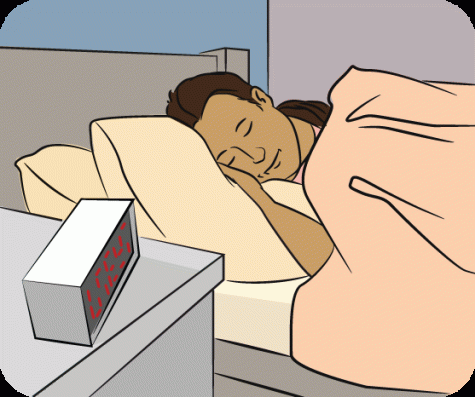Stuck Like Glue: The Technological Epidemic
What is the first thing you do in the morning? If you are like 80% of smart phone users (according to adweek.com), you pick up your phone. Text messages, social media, these are the first things we see in the morning and often the last things we see before we go to sleep. We live in the age of technology, so this information isn’t necessarily surprising, for it is accepted as the norm. You can hardly go anywhere without seeing the masses around you glued to some sort of smart device, usually their phones. You can’t blame them for being so enraptured; our phones are useful little things that do a variety of things, from giving us the latest current events, allowing us to connect with someone half way around the world in an instant, to documenting our lives with a few simple taps on a screen. As useful as our little smart friends are, the magnitude with which we depend on them can have some major negative consequences, particularly on youth.
To fully grasp the magnitude of our reliance on the smart devices, let us note a few statistics. In the U.S., 72% of Americans own a smart phone (according to businessinsder.com). Of that 72%, “The New York Times” article, “Hooked on Our Smartphones”, notes that 46% of those smart phone users say they cannot live without their devices. This is due to the strong emotional attachment to our phones (ncbi.nlm.nih.gov). Furthermore, on average, people check their phones 150 times per day, which roughly comes out to about once every 6 minutes, and touch their phones around 2,617 times a day (amp.businessinsider.com); iPhone users alone unlock their phones 80 times a day, according to Apple. Moreover, according to adweek.com, “79% of smart phone users have their phone on or near them for all but two hours of their waking day; 63% keep it with them for all but one hour. A full quarter of respondents couldn’t recall a single time of the day when their phone wasn’t in the same room as them.” Now that you have a rough idea of how deeply integrated these devices are in our lives, let’s take a look at the effects they have.
One of the major negative effects of smart phone usage is on our mental health. According to consumeraffairs.com, the phone itself doesn’t necessarily cause mental health issues, but rather our use of it. The statistics above supports the fact that this generation is addicted to their phones, and according to the article, it is the addiction that does the most damage. The results of a referenced study noted that the more addicted to their device that someone was, the higher they scored on the anxiety and depression scale. This is because we use it as a sort of security blanket and an escape from stress, anxiety, depression, etc. (mentalfloss.com). By using it as a distraction, we are avoiding dealing with these issues, causing them to become significantly worse over time. For example, you become uneasy and irritable in situations in which you do not have your phone or cannot use it. Additionally, it is also noted that our addiction causes us to be drawn away from activities that make us happy (referred to as anti-depressant activities), such as actually socializing or spending time with a pet, causing negative feelings to increase. Cyber bullying is also linked to this because it’s easier for people to be mean when behind a screen and not actually facing their victim. According to dosomething.org, “Nearly 43% of kids have been bullied online. 1 in 4 has had it happen more than once”, and “81% of young people think bullying online is easier to get away with than bullying in person”, as well as “Bullying victims are 2 to 9 times more likely to consider committing suicide.”
Most of our phone use is late at night (don’t deny it, you know it’s true). Yes, you lose sleep, but late night cell phone use does more than just cause you to be tired. Loss of sleep can also be linked to depression, as amp.theguardian.com notes “A longitudinal study of 1,101 Australian high school students aged between 13 and 16 found poor-quality sleep associated with late-night texting or calling was linked to a decline in mental health, such as depressed moods and declines in self-esteem and coping ability.” (also reference by mentalfloss.com), also noting that fatigue is linked to depression and anxiety symptoms. Our smart phones are not only affecting our sleep patterns through the desire to use them, but there is a scientific reasoning behind it too. Studies have shown that the blue-violate light given off by our phone (and most other technology) prevents the release of melatonin, which is a hormone that tells us it’s night time, and so time to sleep (businessinsider.com).
Now we can start getting into the negative impacts of extensive cell phone usage on physical health. The first physical affect (and probably the most noticeable) is the affect on our eyesight. Many problems can occur, such as blurred vision, headaches, sore eyes, headaches, muscle strain, and dry eye (yoursightmatters.org). These are mainly due to straining our eyes to read the small text on our phones. Furthermore, bbc.co.uk references optician Andy Hepworth, saying that the light emanated from our phone is “potentially hazardous and toxic to the back of your eyes”, and “tests have found that over exposure to blue-violet light has the potential to put us at greater risk of macular degeneration, a leading cause of blindness.” Moreover, our devices affect attention span. A study by Dr. Lee Hadlington of De Montfort University “found that the more times the person used their phone per day, the more likely they were to experience ‘cognitive failures’, which is a scary way of saying they did stuff like losing their keys, forgetting that they made an appointment somewhere, or losing focus in the middle of a conversation.” (metro.co.uk). This is further supported by a study done in Canada. “The results showed the average human attention span has fallen from 12 seconds in 2000, or around the time the mobile revolution began, to eight seconds. Goldfish, meanwhile, are believed to have an attention span of nine seconds.” (telegraph.co.uk).
Lastly, we need to look at how hygienic our phones are. The answer: far from it. According to multiple sources, our phones are dirtier than a toilet seat (thehealthsite.com, abcnew.go.com, amp.businessinsider.com), about 10 times dirtier (timeinc.net, amp.usatoday.com, kcim.com). The bacteria carried on them can spread skin infections, meningitis (an inflammation of the membranes (meninges) surrounding your brain and spinal cord), E. Coli (a bacterium that can cause severe food poisoning, especially in old people and children), and so much more. They are basically a Petri dish, often placed in warm places such as our pockets where the millions of bacteria transferred to it throughout the day grow and develop. Maybe you should think about that the next time you want to sleep with your phone in your bed. This isn’t only common with our phones, but by extension, our ear buds, or headphones in general. They too pick up all this bacteria throughout the day, whether you lent them to someone else or simply listened to music on the bus. The bacteria can cause ear infections. The site trendsnhealth.com states “In most of cases, people who use regular earphones and headphones experience more ear wax which results in tinnitus, ear infection and even problems in hearing”, as well as some unrelated general problems that have nothing to do with the bacteria, such as “The inner ear is directly linked to the brain, even a little infection in the inner ear can directly affect the brain and can lead to serious health issues.”(constant use at high volumes resulting in hearing loss was also noted).
This is where our cell phone addiction has gotten us. Whether it’s increased depression due to social media (increase by 27% because of it), being victims of cyber bullying, or the anxiety involved with wanting the approval of others in the form of likes on social media, our addiction is harming us. Suicide rates have skyrocketed alongside cell phone use, the constant touching and always having it with us is causing health issues, and eye sight and attention spans are worsening, all because we are stuck like glue to our phones. Think about this the next time you reach for your phone for what seems like the 47th time that day. Do you really need to check it right that second? What is more important, your health or your social status?

Reyna is a junior at Somerset Canyons and has attended it since it first opened. She is originally from Texas and dedicates most of her time to her AICE...









